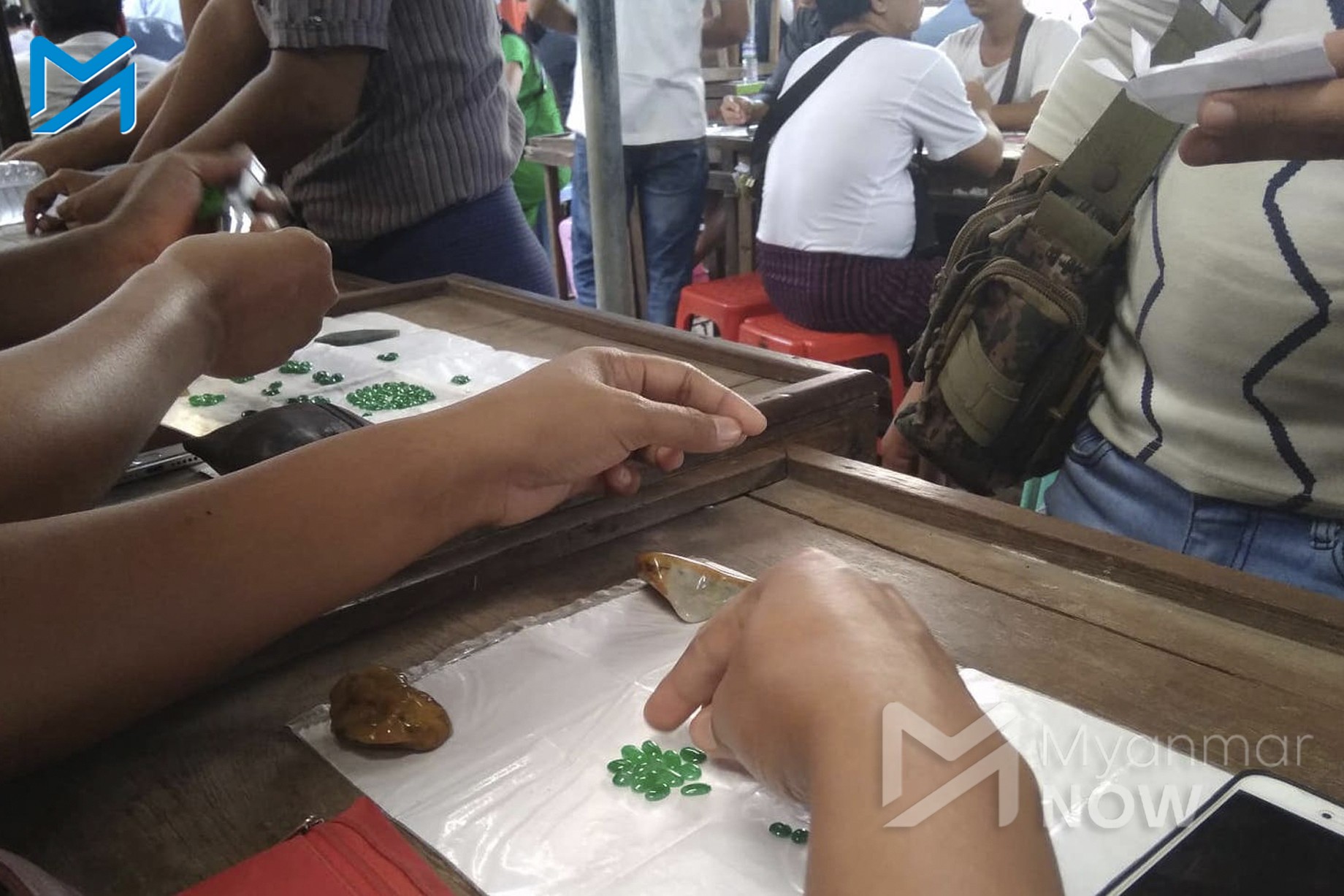
Two bombs went off at a gemstone center in Mandalay on Wednesday morning, in the latest salvo of a battle that aims to deprive Myanmar’s junta of a key source of revenue.
A Mandalay resident who lives near the center in the city’s Maha Aungmyay Township said he heard two consecutive blasts at around 5am.
“It was still early, so there weren’t many people around. I heard there were no casualties, but an electrical control panel was destroyed,” he said, speaking on condition of anonymity.
A Mandalay-based urban guerrilla force called “Black Image” claimed responsibility for the attack, which it said was intended as a “warning” to gemstone dealers who have been returning to the junta-controlled center under pressure from the regime.
In a statement released shortly after the blast, the group added that it would not be responsible for any casualties resulting from the continuation of operations in the center.
With more than a thousand booths and tens of thousands of annual visitors, the center has long been a major source of tax revenue. Although it was closed in March of last year due to the Covid-19 pandemic, it was reopened on October 12.
Since then, it has been targeted at least six times by groups seeking to deprive the regime that seized power in February of a reliable income stream to finance its continuing bid to bring the country under its control.
Last week, in an effort to force dealers to return to center, the junta conducted raids on two Mandalay-based gemstone companies that were allegedly engaged in illegal transactions through the online Chinese payment platform, WeChat. More than 400 people were arrested, including 30 Chinese nationals.
Some of the dealers nabbed in the December 20 sting have reportedly been charged with conducting business without a license, an offense under the Myanmar Gemstone Law that carries a three-year prison sentence. They are currently being held at Mandalay’s Obo Prison, according to court sources.
Some of the Chinese who were arrested are also facing immigration charges, the sources added.

The crackdown appeared to have the desired effect. By the start of this week, the center was reportedly full of dealers and customers no longer willing to take the risk of doing business under the radar.
“When the major Chinese merchants went back into the building, we had no choice but to follow. Thousands of people are operating inside the building today alone,” said a dealer who did not want to be identified.
But junta pressure is not the only reason that many gems dealers have shown a willingness to return to business as usual, despite their opposition to the regime.
“Honestly, no one wants to go back into the center, as we don’t want to pay taxes to the military council. But we have families to look after, and we’ve been out of business for nearly two years now. If we don’t resume work, we’ll go broke and starve,” said another person working in the industry.
Now many dealers feel that they have been caught in the crossfire of a battle between a junta that wants them to go back to making money and an armed resistance movement determined to deprive the regime of a vital economic lifeline.
“We’re basically being threatened by both parties. We have to live with the fear of getting arrested and shot if we don’t go into the center, and when we do, we get criticized by the revolutionary forces,” said another dealer who spoke on condition of anonymity.
Meanwhile, international rights groups have also targeted Myanmar’s gems industry for its role in propping up a military junta that has killed nearly 1,400 civilians since seizing power.
In a December 15 report on “conflict rubies,” UK-based campaign group Global Witness said that some of the world’s most famous jewellers may be providing the Myanmar regime with the means to commit massive human rights abuses.
“Of more than 30 international jewellers, auction houses and mass-market retailers we contacted, most did not have adequate due diligence measures to determine the sources of the precious stones they buy,” the group said in its 71-page report.



